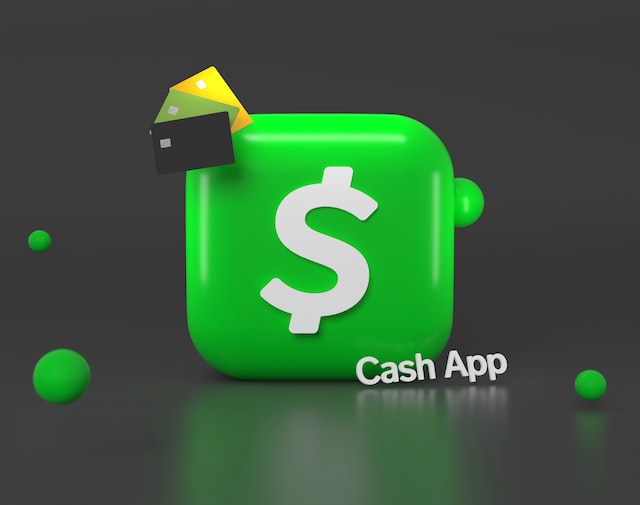How to Invest as a Teenager in Canada?
You may think that investing is something one does later in life, but in reality, the sooner you start putting money away, the better off you’ll be for it.
Plus, investing is the best way for young people to get familiar with the stock market (the good and the bad) and learn about the importance of making wise financial decisions.
Luckily, there are several ways you can invest as a minor even though you cannot open a trading account until you are at least 18 or 19 (depending on the province).
Read more on how to invest as a teenager in Canada, the best practices to use and the pitfalls to avoid.
How Can Teenagers Invest in Canada?
As stated above, you cannot open a registered or savings account with a bank or online broker until you are 18 (or 19 in some provinces). Still, there are some options available to both teens and parents interested in saving and investing.
1. Open a Registered Education Savings Plan (RESP)
An RESP is a special savings account that allows parents to put money aside for their children’s post-secondary education.
This is a tax-sheltered account, which means the funds are not taxed until they are withdrawn and even then they are taxed in the student’s hand, so there is no little to no tax payable.
Another plus is that the government will add another 20% on the first $2,500 per year through the Canada Education Savings Grant (CESG). You could also be eligible for the Canada Learning Bond (CLB) or other grants. There are no annual contribution limits and deposits can be automated, i.e debited from your bank account weekly, bi-weekly or monthly.
The types of investments held in these accounts range from mutual funds, Guaranteed Investment Certificates (GICs), as well as stocks, (ETFs), options and bonds, giving you complete control over the assets you want to invest in.
Although the main purpose of an RESP is to finance your child’s post-secondary education, there is some flexibility—namely if the beneficiary does not continue their education, you can transfer the funds into another RESP (or another registered account) or have the savings returned to you. The account stays open for 35 years and you can make contributions for up to 31 years.
The biggest disadvantage is that the money can only be used for educational purposes. Withdrawing funds for anything else will incur a penalty and income tax. On top of that, you must return any government contributions if the beneficiary chooses not to pursue tertiary education.
2. Set up a Registered Retirement Savings Plan (RRSP)
In Canada, there is no minimum age requirement to open a Registered Retirement Savings Plan (RRSP), although you need to have had employment income and filed a tax return to make an excess contribution (up to $2000). So if your child has had a job and received a T4 tax form from their employer in the previous financial year, they can set up and contribute to an RRSP regardless of age.
Like with RESP, you can hold a variety of assets in the account, including mutual funds, stocks and GICs.
That said, an RRSP may be more complicated than a TFSA. Also, it may not be the best idea to tap into the account before you retire, unless you want to pay tax on the money you withdraw. In fact, with an RRSP there are two possibilities for early withdrawals: the Home Buyers’ Plan (HBP) and the Lifelong Learning Plan (LLP), which somewhat limits your options.
3. Set up an informal trust
An informal or ‘in-trust for’ account is a temporary account used to save money for someone else. It is typically utilized by parents or grandparents who want to set up a nest egg for their children or grandchildren that they can later use to buy a house or pay for university.
The trust is managed by the parents (or guardians, relatives or grandparents) since minors cannot trade securities until they are 18 or over. There is no limit to how much one can contribute to an ITF, while withdrawals are not permitted unless they are used for the benefit of the minor. Once the beneficiary (the child) reaches the legal age of majority, the account is transferred directly to them.
While informal trusts are not tax-sheltered, they offer some taxation advantages. Usually, if the trust is funded from the savings of the child, the income is attributed to the minor and since children tend to earn below the tax-free threshold, they pay little to no tax on the income. If the account is funded by the adult, then income is taxable to the contributing adult.
Capital gains, on the other hand, are taxable to the minor. Again since their income is usually lower than the basic personal amount, minors may not pay any tax at all.
ITFs are cheap and easy to set up since they require less paperwork than a formal trust. What’s more, most of the biggest banks and trading platforms offer ITFs, including Questrade and the National Bank of Canada.
These accounts offer more flexibility as well—the money you save or earn through interest or dividends can be used for any purpose, unlike RESPs.
On the downside, trusts are irrevocable, which means that once assets are deposited into the informal trust, they cannot be taken back since they are the legal property of the beneficiary.
4. Get your parents to invest in stocks and ETFs on your behalf
If your parents agree, they could open a brokerage account with some of the biggest trading apps on your behalf or you may use theirs (if they already have one). Through the account, you will get indirect access to stocks and different types of ETFs and try your hand at real-life investing.
If your children are not ready to stake actual money, let them start off with paper trading or you can open a demo account—most trading platforms offer one. With a virtual account, teens can manage mock portfolios and witness the effects of the market, time and compounding interest firsthand.
5. Open a savings/chequing account
Several banks in the country, such as Scotiabank, CIBC and BMO, offer youth saving and chequing accounts for children under 18.
Your parents can open an account in your name (regardless of age) or you can open one for yourself if you are aged 12 and over (check with the bank first as some do not allow minors to set up accounts). Most of these accounts do not earn interest, but they do offer a variety of educational tools and resources and have no limits on the amount or frequency of deposits.
Plus, youth chequing accounts usually waive monthly fees until a certain age, so they are a good way to grow your child’s savings.
What Kind of Investments Can You Hold in Canada?
Below you will find a list of the most common investment options.
Stocks
Stocks are the most common investment instrument. When you buy stocks on the stock exchange, you are buying a share of a company that trades on that exchange. If the company performs well, the price of stocks goes up allowing you to sell the shares and make a profit.
Bonds
Bonds are basically a loan to the government or a corporation which is repaid to you on a given date in the future. In the meantime, you receive a fixed rate of return. Bonds are not as exciting as stocks, but they are a lower-risk investment and important if you want to have a diversified portfolio.
Guaranteed investment certificates (GCI)
Guaranteed investment certificates are similar to bonds—you loan money to a financial institution and they pay a guaranteed interest rate for a predetermined term (usually between 6 months and 10 years). The difference is that GICs insure your deposit, which means you will not lose your money—one of the reasons why they are commonly purchased by international students looking to pursue higher education in Canada.
GICs are long-term investments—you can’t withdraw the money until the term expires, plus longer investments offer higher interest rates.
Exchange-traded funds (ETFs)
These are a basket of securities (such as bonds, stocks and commodities). ETFs trade on the stock exchange just like company shares, but they usually involve lower costs—instead of paying transaction fees on each stock you trade, with an ETF you are trading an entire basket as a single entity. ETFs are also considered lower risk since they provide instant diversification.
Mutual funds
Mutual funds are similar to ETFs (holding a basket of securities) but are not traded on the stock market. A professional fund manager handles mutual funds and decides on the investments, which makes them a good option for absolute beginners.
Cryptocurrencies
Crypto assets are one of the latest investing trends, although they are highly volatile and not suited to newbies. What’s more, minors cannot buy or sell crypto just yet as most crypto exchanges have age limits in place, i.e. you must be 18 to open an account.
Before You Start Investing
Whether you are a teen or an adult, you need to be aware of the biggest risks of investing.
You may lose your money
Even if you have experience, you still might end up losing some or all your money, especially if you decide to invest in stocks. The stock market is inherently volatile and subject to drastic price fluctuations, so you need to be prepared beforehand that you might suffer losses. If you have a low-risk tolerance, i.e. you feel you’re not ready for a high-risk investment like company shares, try investing in bonds—these are generally considered low-risk, although returns are lower.
Investing is complicated
Choosing the right investment product can be challenging—even for those who have done their research or have been involved in investing. This is because each asset class comes with its unique advantages and risks. It’s a good idea to consult a financial professional beforehand—they will be able to explain the complexities involved and help you choose an asset that matches your risk tolerance.
You could try a robo-advising platform, which allows customers to hold investments in various accounts such as trading accounts, savings accounts and RESPs and RRSPs. The main benefit is that you can fully automate the process—funds are invested based on preset goals, risk tolerance and preferences, while the account is managed and rebalanced automatically.
Fees
Most online brokerages do not charge any fees on trading, however, there are account and maintenance charges, as well as inactivity, transfer and withdrawal fees involved. With the help of a parent, compare investment platforms to find the one that offers lower fees but does not compromise on important features such as educational and analytical tools, customer support and ease of use.
The Takeaway
Investing, and playing the stock market in particular, can be a lot of fun and a great way to start saving for your future and learning some financial discipline along the way.
That said, investing is not simple or without risk, which is why minors cannot start trading without the help of their parents. Even with their assistance, it’s a good idea to consult a professional financial advisor who can help you make the right investment decisions that will maximize profits but minimize risks.
FAQ
No, even with an RRSP that has no minimum age requirement, you will need a parent or guardian’s consent to open an account. Investment and savings accounts are a legal contract between the account holder and the financial institution that issues the account—if you are a minor, you cannot enter into a legal agreement of that kind.
There are several benefits of investing and saving from an early age.
- The sooner you start saving, the more you will have in your account.
- You will be able to learn more about the stock market (from different types of stock to analytical tools you can use) and gain experience early on.
- You are free to take more risks with your money (especially if you are a tween)—you have time to make up losses before you reach retirement or need to withdraw funds from an investment account.
Learning the basics of investing and taking risks will teach you a lot about making the right financial decisions as well as provide you with invaluable money-managing skills that will in turn help with saving, managing debt and taking out loans.
It depends on the type of account you want to open and the provider. Many banks and investment platforms have low or no minimum balance requirements, while some require that you deposit at least $100 to start using their services. Take a good look at minimum balance requirements as some trading platforms may not have any, but might charge high transaction fees, costing you more over the long run. Always read the fine print to avoid unexpected monthly charges.
No, you need to be at least 18 to open a Tax-Free Savings Account in Canada, or 19 in BC, New Brunswick, Newfoundland and Labrador, Nova Scotia, Yukon, Nunavut and the Northwest Territories.










